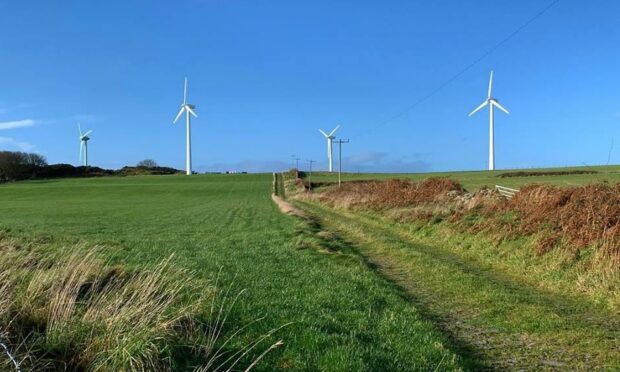Nicola Sturgeon is being warned that “urgent” action may be needed to respond to the rapid rise of “green lairds” in Scotland’s land market.
There are growing concerns communities risk being priced out of owning and benefitting from local land.
The term “green laird” has been used to describe companies and individuals who are buying up estates across Scotland to boost their environmental credentials, offset their carbon emissions, and potentially take advantage of government grants for tree-planting.
Community Land Scotland, which represents groups managing 560,000 acres across the nation, has told the Holyrood government to consider intervening before its new Land Reform Bill is introduced next year.
‘Overheated land market’
Jon Hollingdale, chief executive of the Community Woodlands Association, wrote a new paper calling for a “radical reset” of policies relating to the role of land, and green incentives, in the drive offset carbon emissions.
He claimed current measures often “only add fuel to an overheated land market and will inevitably widen existing inequalities”.
At the same time, Community Land Scotland chairwoman Ailsa Raeburn wrote to Scottish Government minister Màiri McAllan on the new Land Reform Bill, which is expected to be introduced by the end of next year.
It could include a controversial “public interest test” on large-scale land sales, which may ultimately lead to deals being blocked or becoming subject to strict conditions.
Ms Raeburn said her group “warmly welcomes” the proposed Bill, including the public interest test.
‘Structural barrier’
However, she added: “Community Land Scotland is clear that the forthcoming Bill must go beyond these welcome commitments to maximise its effectiveness in addressing the structural barrier that large scale and concentrated land ownership presents to the
sustainable development of Scotland’s rural and urban communities.
“The pressing need to eliminate that barrier is underscored by the crucial role of land in helping to ensure a just transition to net zero and in providing a foundation for community wealth building.”
The group suggests measures such as a public interest test on existing land holdings, the introduction of powers for a “compulsory sale order” when the test is not met, as well a mechanisms to regulate and disincentivise monopoly ownerships by individuals.
However, Ms Raeburn said fresh ideas may also be required, and delivered at a faster pace.
“Community Land Scotland is conscious that the policy agenda propelling the need for further land reform is evolving rapidly,” she said.
“Our policy thinking regarding the potential of the Bill to address that agenda is similarly continuing to evolve.
‘Urgent policy interventions’
“We also recognise that the rapid pace of that changing agenda may necessitate urgent policy interventions prior to the anticipated introduction of the Land Reform Bill.”
Ms McAllan told MSPs last September she believed there was an “immediate window of opportunity to take action to ensure that increasing levels of natural capital value are harnessed in a way that benefits communities”.
She also confirmed that the Scottish Land Commission is taking forward a “package of work in this area as a matter of priority”.
The minister added: “This work will help us find a pathway that balances the need for private sector investment, which has been discussed, with community rights, and with that legal commitment to a just transition, which this government is committed to.”
In December, the commission contacted agents across the country to try to collate data and improve “transparency” on estate sales, which are often private deals.
Hamish Trench, its chief executive, suggested the survey was an important step towards “shaping these markets to work in the public interest”.


